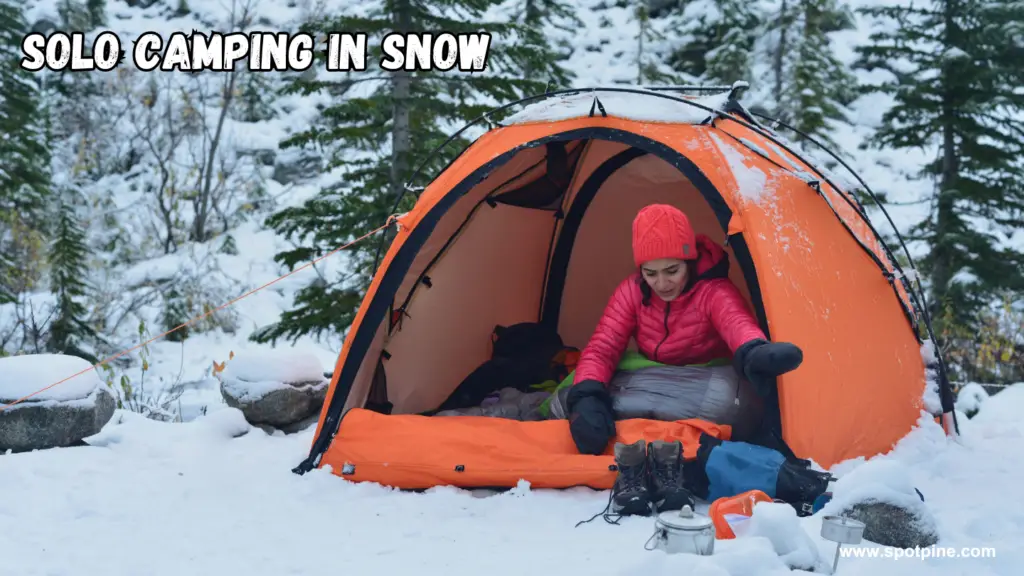Are you an adventure enthusiast looking to experience the serenity and beauty of the snow-laden wilderness? Solo camping in the snow can be a thrilling and rewarding experience, but it’s essential to take necessary precautions to ensure your safety and enjoyment.
Is it safe to camp in the snow?
Before embarking on your solo camping trip in the snow, it’s crucial to understand the potential risks and how to mitigate them. Here are a few safety tips:
- Avoid camping on vegetation: Set up your camp on the snow or an established campsite with bare ground.
- Avalanche risk: Ensure you’re not camping on or below a slope that could slide.
- Hazard trees: Don’t pitch your tent underneath unstable or damaged trees or limbs.
By following these safety guidelines, you can minimize the risks associated with camping in snowy conditions.
Choosing the right camping spot
When solo camping in the snow, it’s essential to select a site that provides shelter from the wind and is away from potential hazards. Avoid setting up camp in steep ravines, at the base of steep snow-covered slopes, or under cornices.
Surviving the cold
Camping in the winter requires extra preparation to stay warm and comfortable. Here are a few tips:
- Use a well-ventilated tent lined with insulation to keep you warm in freezing weather.
- Dress in layers and wear thermal clothing to retain body heat.
- Invest in a high-quality sleeping bag and sleeping pad designed for cold temperatures.
- Stay hydrated and fuel your body with warm meals to maintain energy levels.
Documenting your adventure
Many solo campers in the snow document their experiences through videos and photos, sharing them on social media platforms such as YouTube and Instagram. These platforms offer a glimpse into the beauty and challenges of winter camping.
FAQs:
Is It Safe To Camp In The Snow?
Camping in the snow can be safe if precautions are taken like avoiding avalanche risks and hazardous trees. Choose a spot on snow or bare ground away from vegetation.
Should You Pitch A Tent On Snow?
When camping in the snow, pitch your tent on the snow or bare ground, away from avalanche risks, and not under hazardous trees. It’s essential to choose a sheltered, wind-free location.
How Cold Is Too Cold Camping?
Camping in temperatures below 40° F is too cold. Ensure adequate insulation and gear for warmth.
Can You Survive Winter In A Tent?
Yes, you can survive winter in a tent. Ensure the tent is well-insulated and properly ventilated for warmth.
Conclusion
Solo camping in the snow can be an incredible experience for those seeking adventure and a connection with nature. By following safety guidelines, choosing the right camping spot, and preparing for the cold, you can have a memorable and safe winter camping trip. Remember to document your journey and share it with others to inspire and encourage them to embark on their own solo camping adventures.



